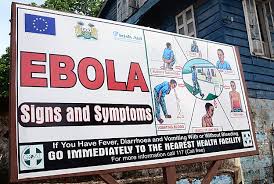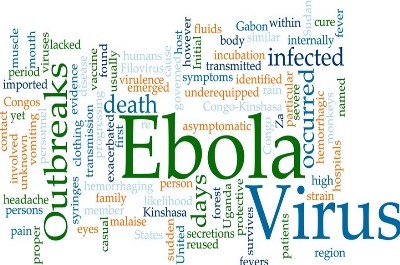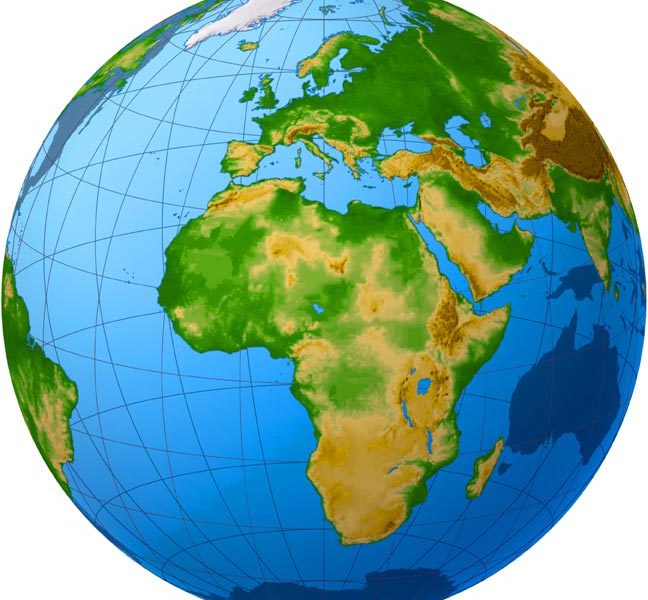The Ebola Crisis: Implications on Maternal and Child Health in Sierra Leone
Ebola, one of the emerging infectious diseases in the 20th century is causing misery in the Mano River Basin countries of Sierra Leone, Liberia and Guinea. The disease is new in the sub-region and hence, posing serious challenges in its management in the affected countries. (Photo: Alhassan Fouard Kanu)
The Ebola scourge will affect the economics of the state, communities and families; burying Sierra Leone as a country further deeply into poverty. There is the likelihood that employers in the private sector, African Minerals Limited, London Mining for example, will hibernate some of their activities and/or even close shop should the epidemic continues. Businesses will be disrupted; for example the LUMA markets which are now been stopped in rural communities will devastate families. All these will further fuel unemployment in the country with resultant increase in household poverty and dire consequences on the nutritional status of pregnant women and children.
A worrying concern over the Ebola scourge is its potential to affect the health of the most vulnerable groups in our society: women and children. As a country, we are one of the nations with the worst maternal and child health indices. All due to the bad shape of our health facilities, shortage of skilled professionals etc. and these have been some of the factors for the unwanted deaths and disabilities in our population; and especially in the vulnerable groups of women and children. A political decision was made in 2010 to provide Free Healthcare (FHC) services to these groups in order to improve on maternal and child health indices and above all, to avert some of the uncalled for deaths due to financial barriers to accessing health services. The scheme has done a lot in improving access to health service delivery for these groups over the years. There has been an increase in facility-based deliveries; thereby reducing maternal complications and saving the lives of mothers and their babies.
The gains of the FHC and its complimenting programmes and projects on reproductive and child health are seriously under threat with the Ebola menace in our midst. The perceived severity of the disease is affecting us all seriously. Amidst the misinformation, ignorance and stigma, some segment of the population is shying away from frequenting health facilities. People are concerned that, going to the health facility to report headaches, fever, diarrhoea and other symptoms akin to Ebola features leaves you to be tagged as “Ebola suspect”. On the part of the health workers, following the demise of their colleagues including the country’s only virologist, Dr Khan and couple with logistical conundrum in the prevention and control of the Ebola infection, staffs are not motivated to put their lives on the firing line in managing cases with similar features to Ebola. Implicitly, many people stand to lose their lives not from Ebola but from the traditional curable ailments like malaria.
This scenario will affect greatly the pregnant women, nursing mothers and their children. Pregnant women are expected to frequent health facilities for routine antenatal checks. The fear of going to health facilities and/or the unavailability of health staff pose serious threat to the pregnancy; for both the lives of the would-be-mother and the unborn child.
New mothers require postnatal care and routine immunization for their newborns. Mothers might fear to take their children to health facilities to avoid crowd during immunizations sessions. This means, most of these children will go unimmunized and for how long depends on the duration of the epidemic in Sierra Leone. This will expose children below the age of 5 years to infections.The MOHS should brace itself for epidemics of childhood diseases such as measles, whooping cough in the Post Ebola period.
The Ebola orphans are growing in number. The denial and the association of Ebola to witchcraft in some societies at the outset of the outbreak and the perceived susceptibility of close family members of affected Ebola persons is causing children with dead parents (due to Ebola) to be abandoned even by close relatives. These children are stigmatized and many are roaming the streets of their communities. Child-focused institutions such as UNICEF, War Child, Save the Children among others and the Ministry of Social Welfare, Gender and Children’s Affair should map out programmes and projects to help out the Ebola orphans in the country.
The fight against the Ebola enemy is everybody’s business (paraphrasing the words of HE the President); and all and sundry should contribute to this fight to ensure we save the lives of all. This nemesis, if not arrested, stands to reverse our success in promoting maternal and child health and of the wider citizenry of Sierra Leone.
Alhassan Fouard Kanu, Ministry of Health & Sanitation
Stay with Sierra Express Media, for your trusted place in news!
© 2014, https:. All rights reserved.






